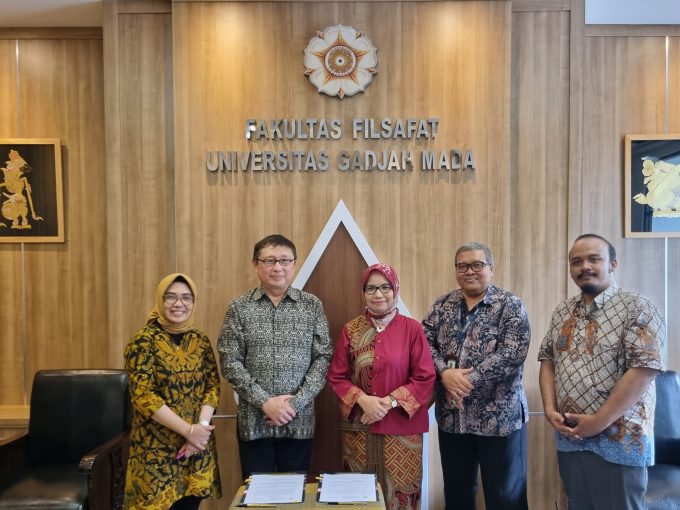
The Dean of the Faculty of Philosophy at Universitas Gadjah Mada (UGM), Dr. Rr. Siti Murtiningsih, S.S., M.Hum., and the Director of Ullen Sentalu Javanese Art and Culture Museum, Daniel A. Haryono, signed a memorandum of understanding between the two institutions on Thursday (18/4). The agreement aims to collaborate on preserving and developing Wayang (shadow puppetry) and advancing the university’s Tri Dharma principles, particularly in academic and student activities.
“The Faculty of Philosophy is committed to exploring and preserving the values and local wisdom of the archipelago, including those embodied in Wayang. This is also a key concern of Ullen Sentalu Museum. Therefore, we believe that by leveraging each institution’s capabilities, we can achieve shared goals,” said the Dean of the Faculty of Philosophy.
The scope of this collaboration includes activities such as sharing heritage through the presentation of collections via websites, films, and books; educational and teaching activities; research and development initiatives; as well as performances and cooperative projects.
Murti explained that this partnership could be enriched with activities such as interpretation sessions, workshops, seminars, Wayang performances, and the development of a Philosophy of Wayang course. Both institutions are also open to collaborating with various parties both domestically and internationally.
The Faculty of Philosophy currently houses the Center for Wayang Philosophy Studies, which focuses on the philosophical dimensions of Wayang as a cultural heritage of the archipelago. Wayang holds profound values that can serve as a guide for human life.
Additionally, the Faculty of Philosophy has established the Laboratory of Nusantara Philosophy (LAFINUS) as a platform for community service, research, and discussion of local wisdom in the archipelago. LAFINUS conducts various studies, discussions, training, and conferences to recognize, understand, and analyze ideas and philosophies of Nusantara for the essence of human life through its Nusantara Philosophy research program.
This collaboration is expected to further enhance the role of the Faculty of Philosophy in conducting significant studies. “This aligns with one of the missions of the Faculty of Philosophy, which is to strengthen collaborations with various parties in the fields of education, research, development, and community service, particularly in philosophy and local wisdom,” added Murti.
